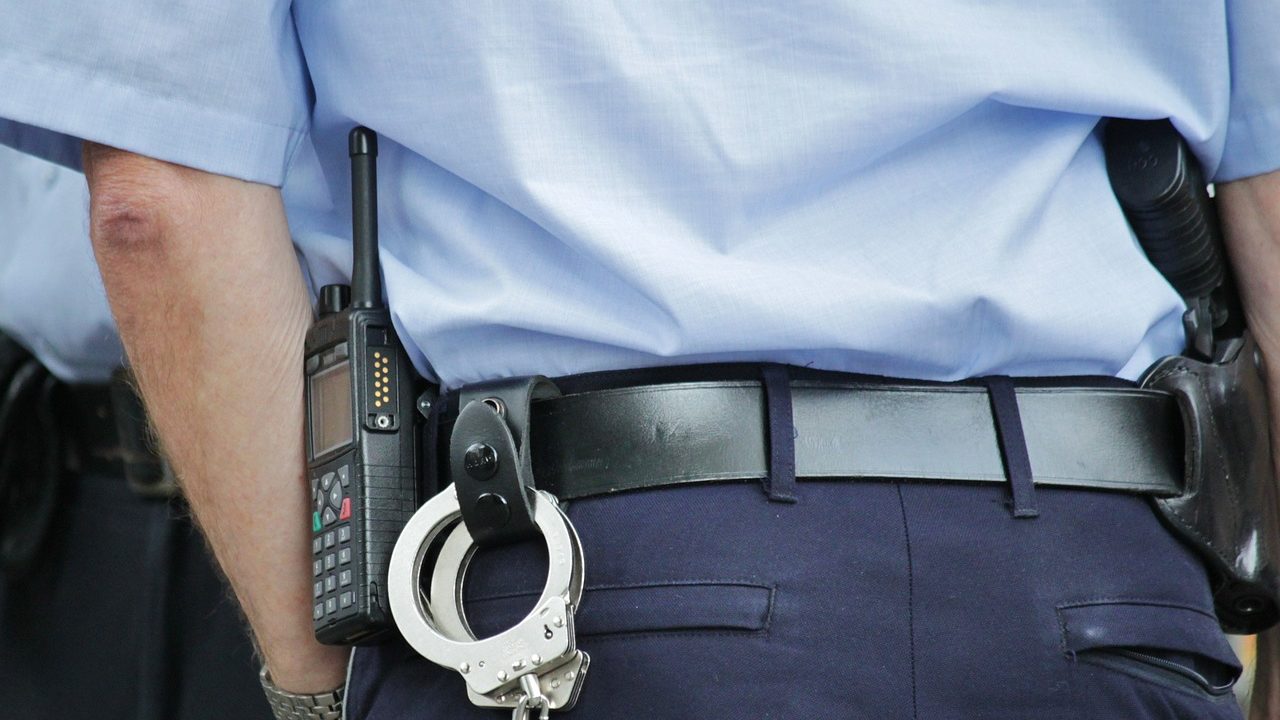
The time had come to strap on my gun…er, big-girl panties, I mean…and get serious about researching my crime novel. When you write mystery/crime novels your biggest fear is that someone in law enforcement will snicker while reading it, suspecting you watched too many TV shows like Blue Bloods and CSI and have little understanding of actual police work. With that in mind, I enrolled in the annual Writers’ Police Academy, a crash course (in more ways than one) in everything from law enforcement to courtroom procedure along with instruction in ballistics, forensic psychology, EMT training, to name a few of the courses.
The good news: I survived.
The even better news: I survived, armed with enough to knowledge to hopefully not get in trouble in a real take-down. (Go for the face & keep your arm at an upward angle when fending off an attack.)
I arrived in Green Bay, Wisconsin on a Thursday where I joined the roughly 300 other writers in attendance. Following the introduction was a lecture on drone technology is given by one of the world’s experts and which included a demonstration of a drone that would fit in the palm of my hand buzzing the crowd while we watched ourselves on a big screen in a live feed from the drone’s video camera. Way cool. And a bit scary when I learned all the spy stuff drones can do.
The following morning we were bussed to the nearby Northeastern Wisconsin Technical College, where the instructors staged a mock car accident complete with “dead” guy and crying “widow” and the “drunk” driver/daughter. We watched as cops took control of the scene and EMT workers tended to those on the ground. We all clapped as the “dead” guy emerged from under the sheet that was covering him to take a bow along with the others. We also suppressed shudders recalling real-life accidents that we’d either witnessed or been involved in.
Throughout the day, I attended classes in courtroom procedure, taught by district attorney Kevin Rathburn (super knowledgeable and scary bright – definitely wouldn’t want to have him prosecuting me) and in “straight talk on cops” taught by a former cop turned psychologist who specializes in cops who suffer from PTSD. I witnessed a ballistic demonstration in which the instructor (a nice but scary dude on account of his sniper-like marksmanship skills) pumped rounds into a bullet-resistant vest. (I also learned there’s no such thing as “bullet-proof” – a Kevlar vest won’t protect you from bullets fired by a rifle, for instance).
Later in the day, instructors conducted a series of mock take-downs in which attendees got to play cops using a training gun and which had us laughing at some of the more humorous attempts (one by a tough-talking granny). I now know how to use a baton, which in a pinch I could use against a bad guy with some degree of accuracy.
Saturday included a class on conducting a clinical interview taught by an expert in forensic psychology, a discourse on the Avery case that’s featured in the documentary Making of a Murderer, and EMT training. All I can say is my apologies to the dummy, aka Rubber Dude. Had he been a real-life victim, he’d have died for sure with me working on him. EMT work is harder than it looks and I gained a new respect for those who do it. I did, however, successfully insert an IO intraosseous needle into a chicken egg. No one died.
Guest speakers on Friday and Saturday nights were best-selling authors Lee Goldberg and Tami Hoag. Both were engaging speakers with plenty to say on the subject of writing crime novels. Rubber chicken at the banquet on Saturday night was a welcome relief after my date with Rubber Dude.
I came away from the weekend with a notebook full of notes, hours worth of lectures recorded on my iPhone, and a head crammed with knowledge I would have had no way of getting any other way short of actually training to be a cop. Thanks to the Writers’ Police Academy, I have a reasonable shot at not embarrassing myself when I write crime fiction.
